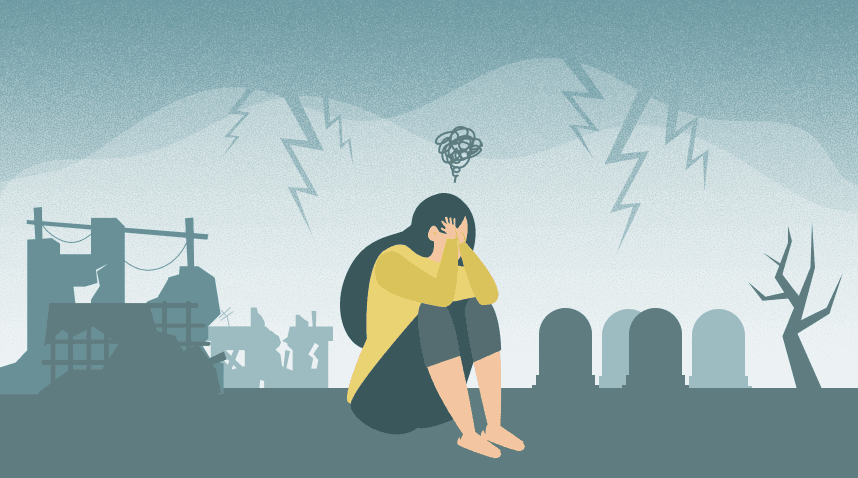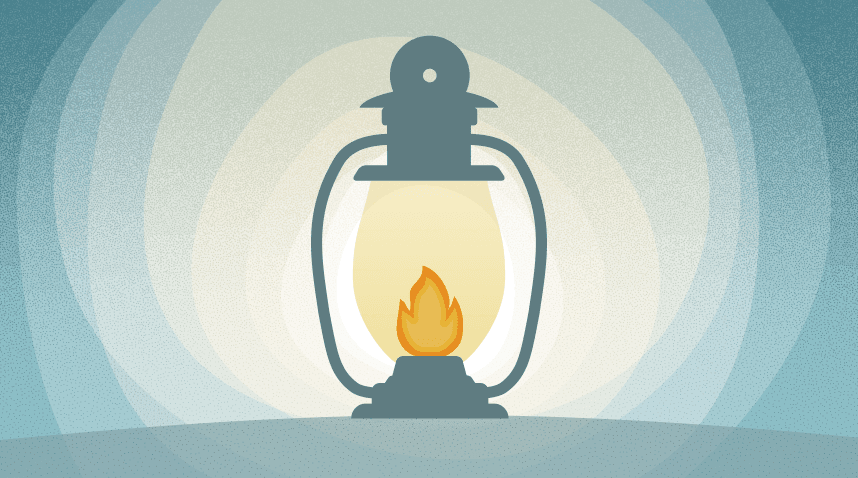TLDR: Allen reflects on his experience in trying to understand a sutta, covering the importance of appreciating them in its totality with its context and character while being patient in coming to one’s own interpretations.
This is a little record of my journey with a short sutta in the Therigatha (Verses of the Elder Nuns). You can take it as a commentary, written in the year 2025 though I’m no Budhagosha.
Your writer here is merely a wanderer trying to make sense of the world through reason, and increasingly through faith. So as much as the following words are not from a well-learned monk, are not a few words inspired by the Dhamma still worthy of attention? If you judge it to be so, then let’s go on this short journey in my struggle with a sutta that is only five stanzas long.
Here I am, reflecting on one of the suttas which I could make no head or tail for a few days.
I woke up today with an intuitive appreciation of the sutta. It’s 5.30 a.m., and it’s becoming clearer now–how could I have missed it? Having mulled over it for a few days with not much progress, I would like to document the experience here in the hopes that it could be a reminder to me (and possibly you) on how best to approach the suttas. Let’s dive in.
Patacara’s Inspired Verses

Three days ago, in the midst of doom scrolling, I came across the Therigatha of Patacara, and found myself a little dumbfounded by its meaning. The story described how she achieved a mind of stillness after washing her feet and noticing the water flowing and eventually attained enlightenment.
HUH? Why? How? Sure, I’ve been to zen gardens with flowing water,–it’s peaceful not doubt. But enlightenment? Really? Meanwhile, I see water flowing every day, and here I am, still tangled up in my defilements.
So I went back to the sutta again;
“Having washed my feet,
I took note of the water,
seeing the foot-washing water
flowing from high ground to low.
My mind became serene,
like a fine thoroughbred steed.
Then, taking a lamp,
I entered my dwelling,
inspected the bed,
and sat on my cot.
Then, grabbing the pin,
I drew out the wick.
The liberation of my heart
was like the quenching of the lamp.”
Patacara said that observing the water brought a sense of peace. She then carried that peace, along with a lamp into her hut and meditated.
That was when she attained Nibbana. So perhaps this is a teaching on the skillfulness of seizing moments of peace and practising when the opportunity arises. Or perhaps it was about working with the presently arising conditions. But again, something felt missing.
A day later, amongst friends in the Dhamma, we ended up discussing Patacara. Naturally, yours truly brought her up, along with my frustration from not understanding her and her plain observation of water. Maybe I just don’t understand women. Maybe I should read the Theragata instead.
One of my friends asked who Patacara was. In the midst of my lamenting about how “easily she attained Nibbana, just by watching the water flow”, the story of her life flowed out of me. Let’s segue into that!
The story, her story

So, I recounted to my friends the story of Patacara – a woman who, upon the impending delivery of her second child, decided she should stay with her parents whom she ran away from, having eloped with an unapproved love interest.
During their journey home, the pregnant Patacara, her husband and her son, were caught in a heavy storm, forcing them to stop for the night. While they rested, her husband went off to gather wood and materials to build a shelter–but he was bitten by a poisonous snake! He had ONE task.
Anyway, imagine having to give birth in a forest while waiting for your man, only to realise that he was never coming back. She traced his steps with her two kiddos in tow and found his lifeless body. Devastated but determined, she decided to continue on her journey regardless.
To get home, she had to cross a river. Feeling too weak to carry both her newborn and her firstborn at once, she came up with a plan. She carried the baby across first, placing him on a makeshift bed of leaves and grass before heading back to fetch her eldest.
Waddling back through the river to retrieve her firstborn, a hawk swooped down and snatched her newborn. Wehhh. Patacara waved her hands and shouted to scare the bird away, which her firstborn on the riverbank took as a signal for him to come to her. Tragically, the child was swept away by the river’s strong current from the recent storm.
The scene of a flustered widow standing helplessly in the gushing river seemed like the perfect metaphor for her internal turmoil. She was all alone, beaten helplessly by the raging river of her thoughts and emotions.
Still, she trudged on and made her way home, only to find her parents in a funeral pyre. Guess what? They died due to the collapse of their house the day before. That was one hell of a shitstorm. She collapsed and was in ruins, akin to the state of the house she grew up in. She was more than depressed, she was hysterical from that day on.
The Buddha, in his boundless compassion, saw her suffering, clothed her and offered her shelter, even though society shunned her for being deranged. This was the turning point in her journey to reclaim herself.
The end
OK having looked at her history, we now have a better sense of the person who uttered it. It came from someone who has experienced a deep sense of loss and suffering and found refuge in the Dhamma.
Reading the sutta in its entirety
I continued to marinate with Patacara’s verses after that day of venting my frustrations about her.
As I read and reread the sutta, I realised that my focus was mainly on the second half of the sutta which was where she attained enlightenment. Naturally, we all want to get to that state, so my mind was trying to find the proximate causes – was it the water, the lamp? – and neglecting the verses in their entirety. In essence, I was skipping to the back of the book, looking for the answer key.
If we were to read the first two stanzas, we see a very different Patacara. She was feeling quite dejected because she has not progressed in her path. She compared herself to lay people, marvelling at how easily they seemed to find success while she struggled.
“Plowing the fields,
sowing seeds in the ground,
providing for partners and children,
young men acquire wealth.
I am accomplished in ethics,
and I do the Teacher’s bidding,
being neither lazy nor restless—
why then do I not achieve quenching?”
She spoke of men farming; ploughing and sowing and how that led to wealth. She then compared it to her conduct and sincerity in the practice, and yet it did not lead to Nibbana. There seems to be a tension in how she laments her own progress. A sense of frustration akin to what I felt in not understanding these stanzas, but I feel like I’m getting close. I decided to let it rest and go to bed.
Linking it all together
Now here we are, I was up before the sun. I felt naturally awoken, with the sutta being the first thing on my mind. Of course! I got a glass of water (yes I saw the water flow though I continued to remain unenlightened), and went to my laptop, typing away:
“Why have I not attained Nibbana?” She asked. The critical self is almost second nature.
On seeing the water of the footbath flow, she was reminded of the day, the rain and the river. She must have recounted the joys of her life, swept away by the same but different water. The water, flowing from high to low, was conditioned by the incline. This is dhammatā is it not? This is the natural law.
All that is, has a cause. All that is caused will end when the causes cease.
Her husband who died seeking shelter for her, the death of her children through her desire to continue the journey, and the question of why she did not visit her parents sooner – all these thoughts of guilt must have weighed heavily on her. How did they arise? The guilt too was conditioned, inclined by the happenings of her life and the choices she had made.
And the futility and frustration towards her practice seem a bit more tolerable. Why compare herself with the people gathering wealth? They go through a different set of conditions, they lead a different life, each with its own flow.
Almost as if she unclenched her comparing mind, she saw that the path was in letting go. Much in the same way the water flows from high to low, where is the control? The conditioned reality is to be accepted. Oh, how the Buddha’s teaching is so true.
With guilt softened, comparisons ended, and the self-imposed expectations put to rest, the heart naturally comes to ease. With the approaching night, I like to think that these were her final thoughts before she uttered one of the most inspiring Verses of the Nuns recorded in the suttas;
“Let this lamp be my friend and let’s practice a bit more. I’ll make my bed just in case, but for now, let’s watch the naturalness of this conditioned life.”
–
“Plowing the fields,
sowing seeds in the ground,
providing for partners and children,
young men acquire wealth.
I am accomplished in ethics,
and I do the Teacher’s bidding,
being neither lazy nor restless—
why then do I not achieve quenching?
Having washed my feet,
I took note of the water,
seeing the foot-washing water
flowing from high ground to low.
My mind became serene,
like a fine thoroughbred steed.
Then, taking a lamp,
I entered my dwelling,
inspected the bed,
and sat on my cot.
Then, grabbing the pin,
I drew out the wick.
The liberation of my heart
was like the quenching of the lamp.”
Wise Steps:
- Sit with confusion: Allow yourself time to process difficult teachings without rushing to conclusions
- Share your struggles with fellow practitioners: Discussing challenging teachings with others can provide new perspectives
- Avoid comparing progress: Remember each person’s spiritual journey is unique. Patacara learned to stop comparing her progress with laypeople’s material success


